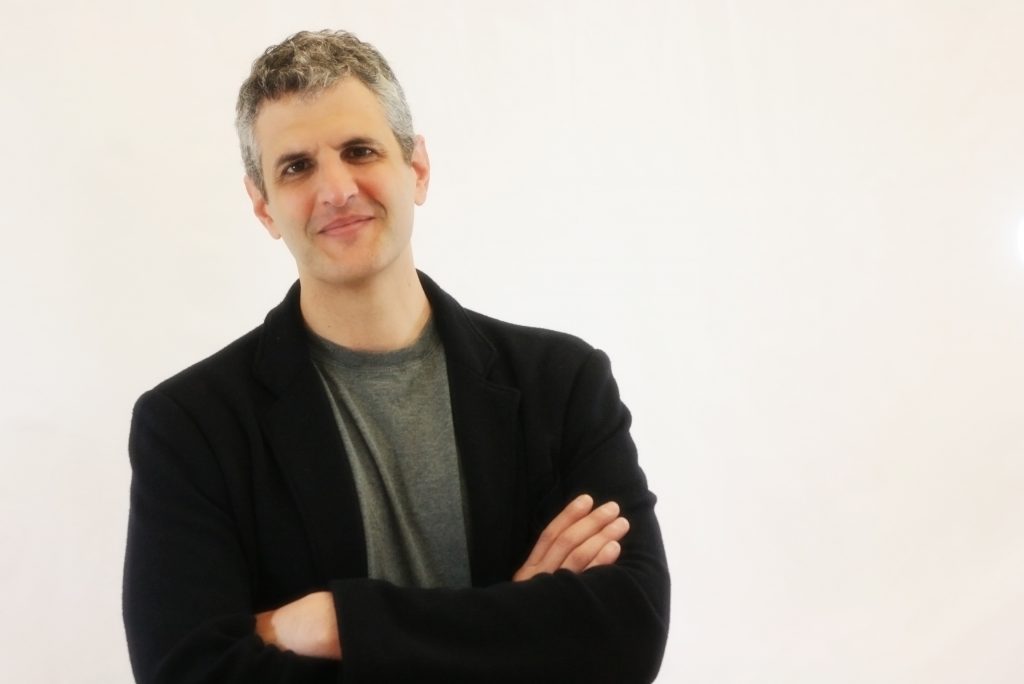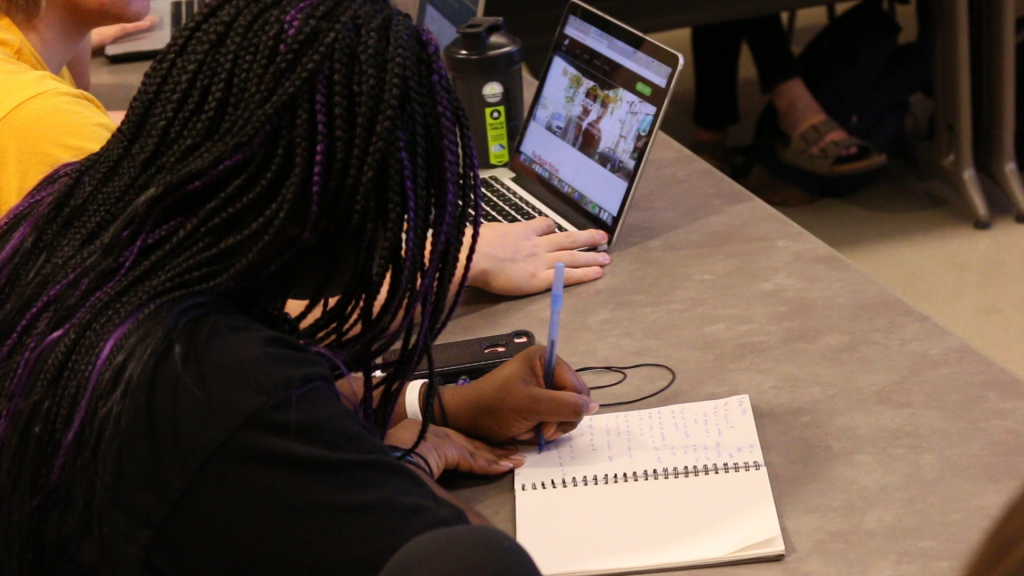It’s gospel music day in professor Louise Toppin’s class, “Music as Culture: The Music of African-Americans.” The course is a survey of the music of African-Americans from its roots in Africa to hip-hop, through the lens of the classical composer.
One minute Toppin, a soprano opera star, is playing and singing Charles Albert Tindley’s “Stand by Me” on the piano in her Kenan Music Building classroom. Then her class of about 50 students watches a YouTube clip of Mahalia Jackson singing “Precious Lord.” But the culminating moment comes when Toppin invites students (many of whom she knows by name) to gather at the front of the classroom to create an informal gospel choir.
They perform, with energetic encouragement from Toppin, an improvised, gospel-ized version of “Twinkle, Twinkle Little Star,” complete with hand-clapping and swaying.
“You want that congregation to feel like those stars are twinkling!” Toppin says, laughing. “You see what it’s about? It’s a communal activity used to inspire the audience.”
Toppin, who became head of the voice area in UNC’s music department in fall 2010, has a passion for sharing her love of music and inspiring students to succeed. She was recruited from East Carolina University, where in 2001 she won the system-wide UNC Board of Governors Award for Excellence in Teaching. She also received the ECU Alumni Distinguished Professor Teaching Award and the ECU School of Music Teacher-Scholar Award.
“I take the time to find the individuality in my students and to find their strengths,” she says. “My job is more than developing the next great opera singer. It’s trying to develop a person who will make a contribution. I talk with my students so they don’t get so self-absorbed that they forget there’s a larger world out there.”
Toppin received a bachelor’s degree in music in 1983 from UNC, but she didn’t head to Carolina to pursue a singing career. She initially was on the pre-medicine track, hoping to become a cardiologist.
She grew up surrounded by music and arts and academia, with both parents being scholars at Virginia State University. Her dad, a historian and native New Yorker, loved the Metropolitan Opera, and her mom, an English professor, would play opera recordings of Leontyne Price. As a youth, she met legendary jazz greats Duke Ellington and Sarah Vaughn, as well as Willis Patterson, who played King Balthazar in NBC-TV’s 1963 production of Menotti’s opera “Amahl and the Night Visitors.”
She was doing well in her UNC classes but was torn between her love of music and medicine. Then one day her father, who never interfered in his children’s decisions, called her.
“He said, ‘I know you’ll be a phenomenal physician, but you have an extraordinary gift as a musician, and you should consider going down that path,’” Toppin says.
So she changed her undergraduate major to music, focusing on piano. After graduation, she was admitted to Peabody Conservatory of Music at Johns Hopkins University, where she earned master’s degrees in both piano and voice. Then she went on to pursue a doctorate in voice at the University of Michigan.
There she worked with George Shirley, a professor and the first African-American tenor at the Metropolitan Opera, who today remains one of her mentors.
“George Shirley taught me so much as a teacher about patience,” she says. “There was once a young woman who was disrespectful to him, but I watched the grace in which he handled the situation and how he never gave up on people.”
Toppin has performed all over the world. She was a finalist in the Munich International Competition and won the Metropolitan Opera regional auditions. Her new CD, “Heart on the Wall,” featuring art songs with symphony by African-American composers, was released Nov. 1.
Still, as much as she loves performing, Toppin says she also values passing on the rich tradition of singing to her students. It’s exciting to see them grow and develop, she says.
Toppin opens the door of her office and welcomes first-year student Kathryn Frye, a music major from Lexington, N.C., for a vocal lesson. She patiently takes Frye through some breathing exercises, then encourages her to hit a high note.
“This time pull my arm when you get to the top note; that’s the amount of energy it takes to get there,” Toppin says. “There it is! Did you feel that?” Then Frye practices channeling the character Luisa as she sings “Much More” from the musical “The Fantastiks.” Toppin takes notes on the performance in Frye’s musical score.
It’s not always an easy, straightforward pathway for students discovering what they want to do with their lives. Toppin tells the story of a former ECU music education major who came into her office in tears one day and said she didn’t want to become a teacher. When Toppin asked her what she really loved to do, the student demonstrated her talent in Scottish dancing. Toppin then helped her change her academic focus to Scottish music. Today, that student, Jennifer Licko, is a successful Celtic folk singer, dancer and instrumentalist.
“I try to help students find their passion,” Toppin says. “As teachers, we can squelch their dreams, or we can help them find a way to realize their dreams.”
[Story by Kim Weaver Spurr ‘88]


